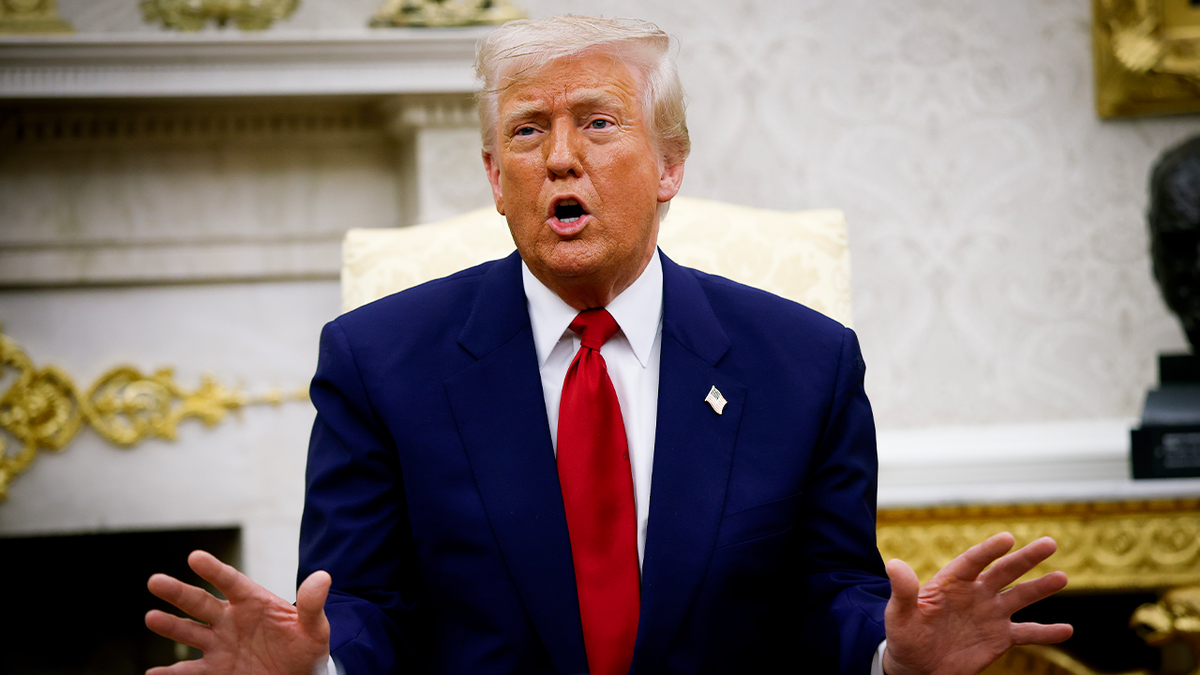Share this @internewscast.com
President Donald Trump on Monday said the U.S. will engage “directly” with Iran in a high-level meeting set to occur this coming Saturday.
“There’s a significant meeting scheduled for Saturday, where we will be addressing issues directly,” Trump informed reporters from the Oval Office while seated beside Israeli Prime Minister Benjamin Netanyahu.
The announced meeting is the first known time the U.S. will directly engage with Iran since the previous Trump administration, when it withdrew from the Joint Comprehensive Plan of Action (JCPOA) in 2018.

President Donald Trump speaks during a meeting with Israeli Prime Minister Benjamin Netanyahu in the Oval Office of the White House on April 7, 2025. (Kevin Dietsch/Getty Images)
The president refused to detail where the talks would take place or how they would differ from the JCPOA, saying only that they will be “different” and “stronger.”
Following the U.S. withdrawal from the agreement, the nuclear deal essentially collapsed despite the remaining signatories – which included the U.K., China, France, Russia and Germany – and Iran began rapidly developing its nuclear program.

Israeli Prime Minister Benjamin Netanyahu meets with President Donald Trump, Vice President JD Vance, Secretary of State Marco Rubio and national security advisor Michael Waltz in the Oval Office of the White House on April 7, 2025. (Kevin Dietsch/Getty Images)
Earlier this year, the U.N. nuclear watchdog warned that Tehran had amassed enough near-weapons-grade enriched uranium to build five nuclear weapons if the uranium were further enriched.
“I think if the talks aren’t successful with Iran… Iran is going to be in great danger,” Trump said Monday.
It is unclear if Israel, or any other nations, will be involved in the talks, though Netanyahu made clear Jerusalem is aligned with the U.S. in securing a deal to end Iran’s nuclear program.
“We’re both united in the goal that Iran does not ever get nuclear weapons, that it can be done diplomatically in a full way, the way it was done in Libya,” Netanyahu told reporters. “I think that would be a good thing.
“But whatever happens, we have to make sure that Iran does not have nuclear weapons,” he added.

















